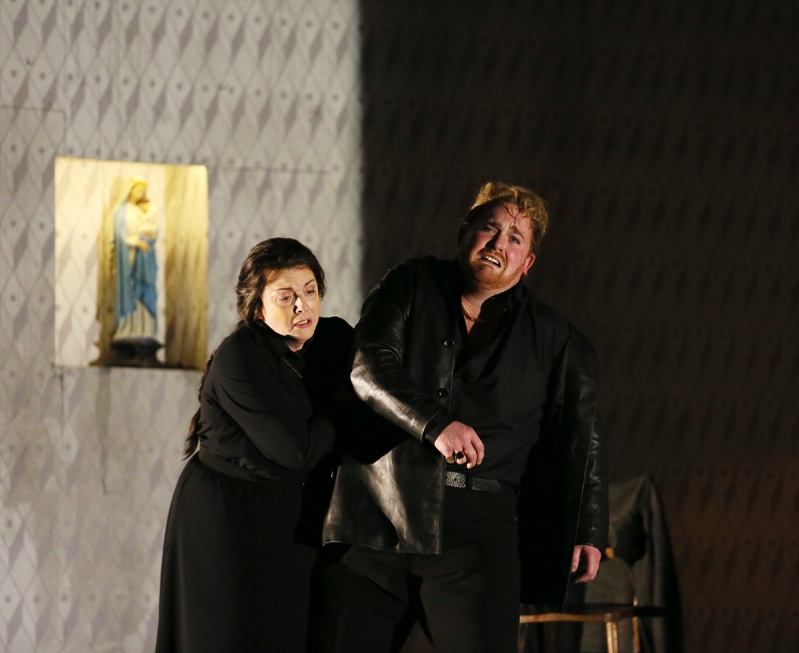 |
| Photo by Donald Cooper. |
Despite how musically rich and sensitive Janáček’s opera Jenůfa is, its grotesque storyline, which includes the murdering of a child, is not. It captures a sample of small-town life in Moravian Slovakia during the mid-1850s, which first influenced Gabriela Preissová to write Její Pastorkyňa (“The Stepdaughter”), which inspired Janáček to compose his opera.
 |
| Photo by Alistair Muir |
It took 10 years to complete and during that time Janáček’s work took an autobiographical turn as his daughter, also caught up in an unhappy affair and a similar fate to Jenůfa, died from typhoid fever. Janáček takes us to a sound world of grief, shame and guilt in a society where tragic consequences, prejudice, and hypocrisy took place for a woman who bore a child out of wedlock – it was considered a mortal sin.
Janáček’s musical achievements are often neglected, unfortunately, and underperformed, though in the last couple of years there has been a surge of his great works programmed at some the UK’s top concert halls; The Cunning Little Vixen and Jenůfa is one of them. David Alden’s 2006 production, of the latter, has returned to the London Coliseum in luminous and triumphant form.
 |
| Photo by Donald Cooper |
Back then the production won an Olivier Award for Best New Production, and if the 2006 production was as good as it was last night, then much credit is due to the intense focus of its outlandish characters, dramatic and minimal staging as well as its refined and impassioned melodies.
An empty run-down Eastern bloc of a factory yard, plucked from a Communist system, is how Charles Edwards’ displays Janáček’s Moravian Slovakian community. Jon Morrell presents simple costumes for the cast, drawn from a closed off society, while the lyrical score is welded together by the unwavering prowess of the ENO chorus and the finesse of the ENO’s most recent music director, accomplished Mark Wigglesworth. (He resigned from the position over controversial disputes with ENO’s senior management this year.)
Stage and vocal performances from the lead cast are courageous too. Nicky Spence provides a vivid picture of Jenůfa’s lover Steva; he’s an obnoxious alcoholic and reckless womanizer, yet he sings with a rich and fluid voice. His brash character is so superficial that he leaves Jenůfa after his jealous half-brother Laca, sung impressively by Peter Hoare, slashes her cheek with a knife, out of frustrated love for her.
Laura Wilde offers a true and honest depiction of a troubled woman starved of love, childless, and left bitterly disillusioned. Although Wilde’s vocal lines brim with empathy and sentimental force as Jenůfa, it isn’t as powerful as I would like. Hopefully, this is insight based on the first night only and her performance enhances as the production goes on.
Michaela Martens, on the other hand, took charge of the stage as Jenůfa’s paranoid and concerned stepmother Kostelnicka – her voice is utterly spellbinding. Her character is the catalyst in the opera, and Martens encapsulates the trauma of a mother consumed by a community controlled by religious and social pressures.
Rarely performed, David Alden’s production at the ENO is worth the watch even if it is almost three hours long. Any die hard Janáček fan should make it their mission to see it.
This production is showing until the 8th of July. Click here to see the ENO website and purchase tickets.
— Mary Grace Nguyen (@MaryGNguyen) June 23, 2016










%20Alastair%20Muir.jpg)
